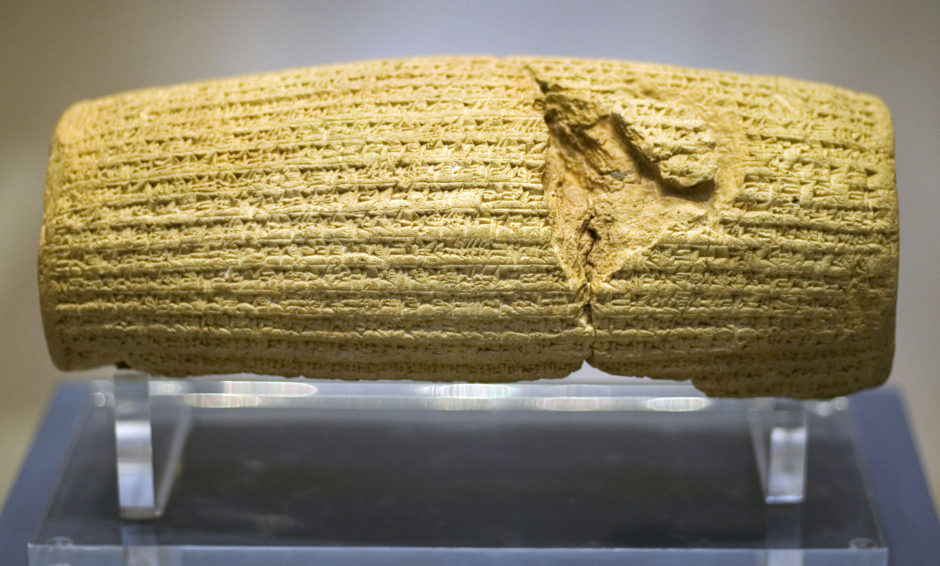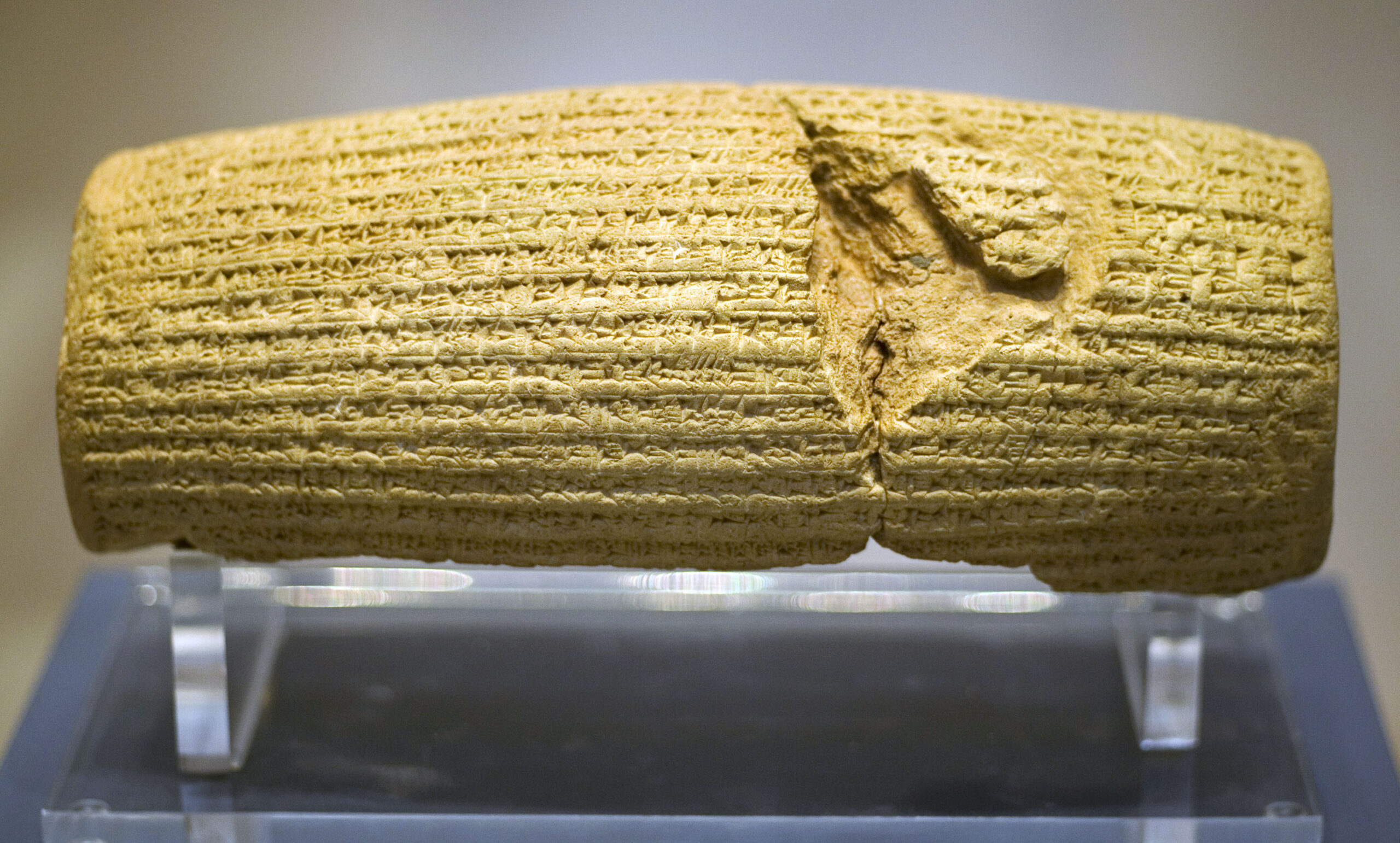The Book of Ezra recounts the return of the Jews from captivity in Babylon, led first by Zerubbabel and Joshua and later by Ezra the Scribe. The temple was rebuilt in spite of opposition from adversaries living in the land.
The Cylinder of Cyrus
The Persian monarch, Cyrus I, recorded his exploits on a clay cylinder (shown below), now in the British Museum. The inscriptions on it include his decree made in 536 BC, which allowed the Jews who were in exile in Babylonia and Persia to return to Israel.
This fulfilled God’s promise, made through the prophet Jeremiah, that the Jews would be able to come back from Babylon after 70 years of captivity (see Jeremiah 29:10).
Enemies of Israel
A small number of Jews returned under the initial decree of Cyrus (Ezra chapter 2). These were led by Zerubbabel (a prince of the royal tribe of Judah) and Joshua (the High Priest).

Their first priority was the rebuilding of the temple and the restoration of worship, the sacrifices, and the work of the musicians and singers.
However, then as now, the Jews had adversaries around them. These members of local tribes interfered with the rebuilding of the temple (chapter 4). Later attempts to build a protective wall around the city were prevented, as their adversaries wrote to a new Persian king, Artaxerxes (chapter 4:7), to prevent that happening.
But the temple building got under way when God’s prophets – Haggai and Zechariah – encouraged the Jews to resume the work, and the Persian king Darius 1 supported that activity.
Ezra the Scribe
Ezra, a priest and scribe of the Law, led a second company of Jews, about 70 years after the initial return.
From chapter 7 onwards, we learn of this and of Ezra’s efforts to reform the nation. He taught them the word of God and showed them their need for total separation from the false worship and ways of the nations round about them.
In chapter 9 is recorded his moving prayer of repentance on behalf of the people:
And now, O our God, what shall we say after this? For we have forsaken Your commandments… You our God have punished us less than our iniquities deserve (Ezra 9:10–13).
Norman Owen
By kind permission of ‘The Christadelphian’

